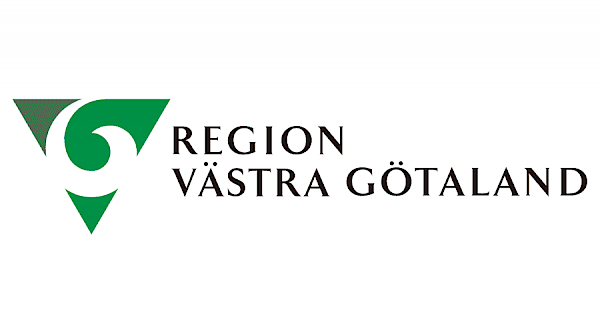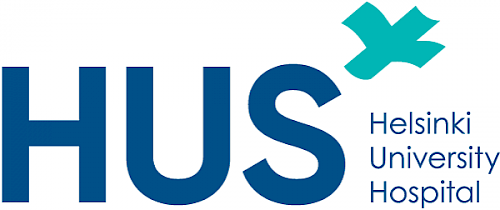Over the last few years, chatbots have revolutionized the way that institutions and people are interacting. These computer programs, designed to handle conversations in natural language, answer more and more complex customer queries, offering a better customer experience quality for public sector organizations.
According to BIS Research:
the healthcare chatbots market generated a revenue of $36.5 million in 2018.
The healthcare sector started to get interested in these solutions during COVID-19 pandemic, where customer service teams and hotlines were overwhelmed.
What are the main healthcare chatbots benefits:
Chatbots were originally designed to simulate human conversation, and their technology has significantly advanced over the last few years. Companies and institutions, often dealing with massive incoming calls or queries, seized the opportunity these alternative solutions were offering to transform their customer service, letting their virtual agents answer repetitive messages and allowing their human resources to dedicate themselves to more complex and interesting tasks.
Healthcare, as any other industry, has its own challenges and chatbots are often used to:
Grant availability around the clock:
Healthcare chatbots are the ultimate safety net for medical emergencies, providing assistance 24/7 when doctors and healthcare professionals are not available. Offering a wide range of services from helping identify symptoms to scheduling surgeries - ensuring that no patient ever has to go without vital care.
Provide necessary information:
When time counts, healthcare chatbots can provide instant vital information, much faster than any human operator. As emergency situations can’t be delayed, a comprehensive database, allowing doctors to access all relevant details (including check-ups, allergies or disease history) about their patients can save lives.
Be a first point of contact:
Patients often visit healthcare websites looking for answers to their questions. Not finding what they’re looking for can be quite frustrating. A chat window can help to relieve them, welcoming them while guiding their search, suggesting some related content they might find interesting or even helping them to book an appointment, directly from the chat interface.
Assist every single user:
As healthcare professionals are limited with the number of patients they can be in contact with, healthcare chatbots allow them to drastically expand their capabilities. Allowing simultaneous assistance through chat or voice consultations, patient engagement is expanded without sacrificing quality interaction or information.
This approach allows medical professionals to take care of those who really need specific assistance, letting chatbot care for more global or frequently asked queries.
Integrating healthcare chatbot technology as one of their contact points allows healthcare institutions and companies to deliver a good self-automated experience to their users.
Through conversational questions they’re used to dealing with, bots are now able to improve themselves, building better and quicker connections with patients while providing tailored responses according to individual needs.
Now, let’s take a look at some healthcare chatbot use cases from institutions that use the boost.ai platform…
Healthcare chatbot use cases:
As healthcare organizations continue to explore innovative ways to provide better online patient care, boost.ai’s conversational AI platform is able to support a variety of healthcare chatbot use cases.These can include, providing automated service, delivering personalized health advice, helping with medication reminders, enabling online bookings, scheduling appointments or connecting patients with medical professionals. Here are two concrete chatbot solutions for healthcare industry:
Boost.ai’s virtual agent granted Swedish citizens 24/7 reliable Covid-19 information and freed up human agents for more important inquiries, beyond the virus. Operating at full capacity, the bot successfully processed an impressive 800 conversations per day! CLICK HERE TO READ THE CASE STUDY
Milli, a boost.ai AI chatbot, created through collaboration between interdisciplinary experts and practitioners in Finland, uses natural language processing (NLP) to help adolescents to open up and learn about mental health issues. Incorporating user feedback throughout the design process has enabled Milli to become more intuitive and supportive over time. READ THE CASE STUDY
Chatbot solutions for the healthcare industry are bringing many more features, from checking for symptoms, to scheduling appointments, providing support, enhancing patient experience or, as huf.fi’s case, directly help with therapy.
But if chatbots are granting a lot of new benefits to organizations, this technology also presents a number of new challenges…
Challenges for healthcare institutions:
Ethical and privacy concerns:
Ensuring privacy and security of personal health data using third-party solutions is the first big challenge. While chatbots can be a great resource for patient communication and care, it is important to ensure that medical data is secure and private when stored or transmitted.
This includes not only protecting the patient’s personal information from being accessed by unauthorized personnel, but also from being collected and used commercially without their consent.
It is important for healthcare institutions to make sure their systems are compliant with all applicable regulations and security measures, implementing privacy controls and data security policy before implementing a chatbot solution.
Develop effective algorithms for NLP:
Natural Language Processing (NLP) allows chatbots to understand complex queries from patients and respond accordingly. Developing algorithms that accurately interpret meaning from all types of conversations—especially those involving medical jargon that is often complicated.
Healthcare institutions may need to invest time and resources into machine learning techniques or train a dedicated model to ensure the accuracy of their chatbot's responses.
Maintaining existing knowledge bases:
As new information becomes available through research or changes in best practices, it is important for organizations to ensure their bot remains up-to-date by regularly updating its knowledge base as necessary.
If not managed properly, a chatbot’s knowledge base can quickly become outdated or suffer from information gaps that could lead to incorrect responses or advice.
Upcoming healthcare chatbots technologies:
As chatbot technology is slowly improving, new solution opportunities for the healthcare industry are emerging and healthcare chatbots are not only used for answering frequently asked questions anymore.
Some solutions now provide algorithms to detect potential health risks or illnesses through conversations with patients, bringing healthcare provision much closer to them. Indeed, NLP has enabled developers to create bots capable of understanding human language and conversing naturally to reassure patients and help them more easily.
Even if some chatbot solution limitations exist, the newest conversational AI technology now allows users to get complex answers to most questions without any human interaction anymore, getting research on their behalf or being recommended appointments.
But specialists' eyes are now on new advancements in speech recognition technology, allowing virtual agents to understand spoken commands more accurately. These new technologies could be used by hospitals and emergency services to make a first selection on their call centres and help operators to deal with more calls, more efficiently.
Chatbot development for healthcare industry:
Boost.ai is the world's first end-to-end conversational AI platform.
We help healthcare institutions increase self-service rates and reach new heights of user satisfaction. Our platform makes it easy to build chatbots that handle user interactions naturally, just like a human being would. With boost.ai, you can easily create sophisticated chatbots that understand natural language and respond in a way that makes your patients feel heard and understood.


